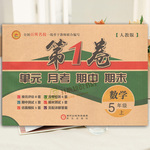题目内容
Campers must not approach animals in the wild, they seem friendly.
A.as if B.even though C.now that D.in case
B

练习册系列答案
 期末1卷素质教育评估卷系列答案
期末1卷素质教育评估卷系列答案
相关题目
题目内容
Campers must not approach animals in the wild, they seem friendly.
A.as if B.even though C.now that D.in case
B

 期末1卷素质教育评估卷系列答案
期末1卷素质教育评估卷系列答案